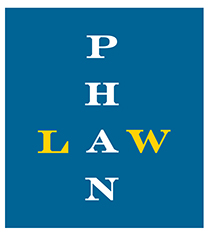Are final disciplinary orders private and confidential or a matter of public record?
Q. I have a board order reflecting disciplinary action. May I ask the licensing board to keep this information private or confidential?
Licensees who are the subject of disciplinary action usually ask me variations of the question posed above. Their motivations are genuine: they have been through an emotional, stressful, expensive, and time-consuming process. They have made a choice or exercised judgment that has resulted in disciplinary action by and through a disciplinary order, and this discipline will appear permanently on their licensure.
Practically speaking, it is understandable that they do not want details of disciplinary action known to their colleagues, peers, employers (or prospective employers), or clients. Most are willing to accept the disciplinary action imposed by their licensing board as long as the disciplinary action is not made of public record. The motivations behind such requests are understandable (i.e., pride, embarrassment, etc.) given the sensitive and oftentimes less-than-flattering nature of the underlying matter or the disciplinary action itself.
More often than not, disciplinary action leaves an indelible mark on one’s licensure and carries with it a certain stigma for the license holder, both professionally and personally, much like a modern-day scarlet letter. In the age of the internet and the information age, this is by far worse than the account of the “Scarlet Letter” written by novelist Nathaniel Hawthorne. Therefore, it is not hard to fathom why concerns are raised and with recurring requests to keep disciplinary action private and confidential.
Our response when this question arises is to tell our clients that licensing boards, because of federal law, can neither keep disciplinary action private nor confidential. Beginning in 1986, the Health Care Quality Improvement Act (HCAIA) mandated that state licensing and regulatory boards report certain adverse actions taken. These were reported to the National Practitioner Data Bank (NPDB) and/or the Healthcare Integrity and Protection Data Bank (HIPDB).
Initially, the scope of this act only applied to physicians and dentists and was based on competence/conduct. The federal law expanded the reporting requirements by state licensing boards in two ways:
- Licensing boards were required to report all adverse licensure actions (not just those based on professional competence and conduct), and,
- Licensing boards were required to report all adverse licensure actions taken against all healthcare practitioners–not just physicians and dentists–as well as those actions taken against healthcare entities.
National Practitioner Data Bank
Title IV of the Health Care Quality Improvement Act of 1986 established the National Practitioner Data Bank. The Data Bank maintains records of disciplinary actions against doctors and other healthcare professionals. It also maintains records of malpractice judgments against doctors and other healthcare professionals. The Data Bank has been in operation since September 1, 1990.
State licensing agencies submit reports of adverse actions against healthcare practitioners to the Data Bank. Others who also submit reports include Hospitals and, other healthcare entities, and professional societies. These entities are required to report adverse actions against physicians and dentists and may submit reports concerning other healthcare professionals. Reportable actions are based on a physician’s or dentist’s professional competence or professional conduct that adversely affects, or could adversely affect, the health or welfare of a patient. Specifically, reporting entities are required to report the following:
- State licensing agencies must report certain disciplinary actions related to professional competence or conduct taken against the licenses of physicians or dentists, including revocation, suspension, censure, reprimand, probation, and surrender.
- Hospitals and healthcare entities are required to report professional review actions that adversely affect a physician’s or a dentist’s clinical privileges for a period of more than 30 days.
- Hospitals and healthcare entities are required to report acceptance of a physician’s or dentist’s surrender or restriction of clinical privileges while under investigation for possible professional incompetence or improper professional conduct or in return for not conducting an investigation or professional review action.
- Professional societies must report professional review actions based on reasons related to professional competence or conduct that adversely affects the membership of a physician or dentist.
Also of interest is that malpractice insurers are required to report any payments made on behalf of the practitioners they insure. Malpractice insurers must report any payment made, whether the result of a court judgment, settlement, or arbitration. The reports must be made within 30 days from the date the payment is made. It is noted that healthcare practitioners who make payments on their own behalf in response to malpractice claims are not required to report such payments.
Finally, the Data Bank can only release records to certain authorized entities, including state licensing agencies, hospitals and other healthcare entities, and professional societies. In some cases, the Data Bank can release records to plaintiffs’ attorneys prosecuting medical malpractice actions. The information contained in the Data Bank is considered confidential, and the Data Bank utilizes a comprehensive security system to prevent unauthorized access to the information contained in it.
The National Healthcare Integrity and Protection Data Bank (HIPDB)
The National Healthcare Integrity and Protection Data Bank (HIPDB) is a national database that was created by the Secretary of the U.S. Department of Health and Human Services in accordance with the Health Insurance Portability and Accountability Act of 1996 (HIPAA) to combat fraud and abuse in health insurance and health care delivery.
Federal and state licensing and certification agencies are required to report final adverse licensure actions (i.e., revocations, suspensions, and censures) taken against healthcare practitioners, providers, and suppliers to HIPDB. Although the information reported to HIPDB is not available to the general public, it is viewable by federal and state agencies and certain employers. Further, once a disciplinary action has been reported to HIPDB, it may only be expunged under very limited circumstances, such as where an agency made an error in the original report to HIPDB or where a disciplinary action against an individual was appealed and overturned.
What adverse actions are reportable to the National Practitioner Data Bank (NPDB)?
A state licensing board must report adverse action taken against physicians, dentists, other healthcare practitioners, and healthcare entities within 30 days of when the action was taken. Boards must also report any revisions to that action, such as when a license is reinstated. What is reportable to the NPBD? In other words, what constitutes “adverse actions”?
Generally, state licensure actions taken as a result of formal proceedings are reportable to the NPDB. Adverse actions include the obvious, such as revocation or suspension of one’s license. The not-so-obvious includes action such as a reprimand, censure, or probation. Further, any dismissal or closure of the proceedings by reason of the practitioner or entity surrendering the license or leaving the State or jurisdiction is reportable. Also, any other loss of the license, whether by operation of law, voluntary surrender (excludes those due to non-payment of licensure renewal fees, retirement, or change to inactive status), or otherwise reportable. Finally, any negative action or finding that is publicly available information is reportable. Examples include limitations on the scope of practice, injunctions, or forfeitures. It should be noted that administrative fines or citations are excluded unless they are connected to health care delivery or taken with another reportable action.










